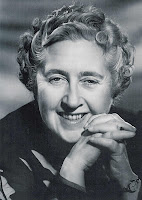The power of stories can not be measured by the books we read or the films we watch. For many, the effects of storytelling began long ago, in infancy. Stories affect the way in which we think, the method of how we perceive, and they induce the intensity of our emotions. “Not until we tell ourselves a story can we make sense of our experience,” says Jerome Bruner, the noted psychologist. Stories anchor our beliefs, and at the same time, set them free. Stories present a yardstick by which we relate all things. They are the lies of fisherman and they are the truths that are held by the faithful. They are the fables, the myths, and the classics. They are timeless, traditional, immortal, and unforgettable. At the same time, they are contemporary, modern, and up to date. Some stories disappear almost at the exact second they are told. For me, stories are a way of life. Storytelling is how I communicate my thoughts and emotions. All life is a metaphor. Have you told a story today?



